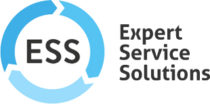What is an ERP?
While the software components of an ERP has been around since the early 60s, the acronym ERP was not coined until the 1990s by the Gartner Group to describe an extension that they created to their MRP (Materials Resource Planning) system.
The term ERP, Enterprise Resource Planning, today now represents a software package that includes back and front office functionalities and addresses all core enterprise functions. ERPs are now an integral part of many businesses who use the software to streamline and manage all departments within their business operations.
As your company grows in employees, customers, and sales, you’ll soon discover a need for an efficient ERP that can help you keep track of different workflows within your organization. There are a lot of choices out there and ERPs can be an investment, which is why we created this list of 8 essential features that every ERP should have to help you choose one that’s right for you.
Financial management
Many people will argue that financial management is the core of any ERP system and they wouldn’t be wrong. Tracking accounts payable and billable are essential for your business, but the financial management module should also keep track of your business’ general ledger, asset, and cash management, ensuring that you are financially healthy to tackle whatever comes your way.
Human resources
Another essential feature of any ERP system is human resources management and payroll. As your business grows, so does your workforce. Tracking payroll, overtime, benefits, salary, recruitment and employee performance are all vital aspects of running your business. Keeping your team happy and running efficiently will have a direct impact on the rest of your business and its corporate culture. If your HR team is running smoothly, everyone else in the company will feel it too— even your customers.
Supply Chain Management (SCM)
Supply chain management is no easy feat and the process of managing purchase orders, suppliers, invoices, inventory, and distribution is a big job for any business. So if you’re able to make the tall tasks of coordinating with manufacturers, managing supplies and identifying hold-ups easier for someone in your business, you should with an ERP that has supply chain functionalities.
Customer Relationship Management (CRM)
If ERP is the core of any business, then customers are the lifelines. Without customers, there would be no business, so it’s essential to have a module in your ERP that helps you manage, build, and cultivate a lasting relationship with current and prospective customers. Since your customers are your most valuable assets, make sure your ERP has some sort of CRM so that you can communicate information from your customers to marketing, to sales to customer service in real-time.
Analytics and reporting
Business intelligence is an integral part of any company, especially as it grows and expands. Smart decisions are often ones made with data and historical insights. Having access to real-time analytics and data will help leaders to pivot their business when necessary and avoid disruptions where possible. Tracking financial reports and managing cash flow, will also give your stakeholders full visibility on the health of your business and to appropriately manage and adjust workflows and processes.
Cloud-based
Having a cloud-based ERP is an important consideration these days as more and more businesses turn to the cloud to store and backup their data. Being on the cloud could save your business time and resources, eliminating the need for maintenance, servers, and security. It also means that you’ll be able to access vital business information from the luxury of anywhere in the world — which makes traveling and global expansion more viable.
Mobile integration
It’s the golden age of mobile devices, and these days having a smartphone is standard. Customers and employees alike demand flexibility and if your ERP doesn’t offer a mobile service for your business, it’s considered behind. If you’re a business is one that dispatches employees out into the field, it’s essential for your ERP to have a mobile integration so your office can seamlessly communicate back and forth with your on-site technicians.
Customization
No business is exactly the same, and once you invest in an ERP, you’re anchored in time and money. Make sure you choose an ERP that can be slightly customized or have modules that can be added to your business as it scales and your needs change. In addition to customization, make sure your ERP also allows for integration capabilities, so you can add software such as payment processors if you need it later on.
Looking for an ERP system that will take your business to the next-level? Give Expert Service Solutions a call for a free trial today.



